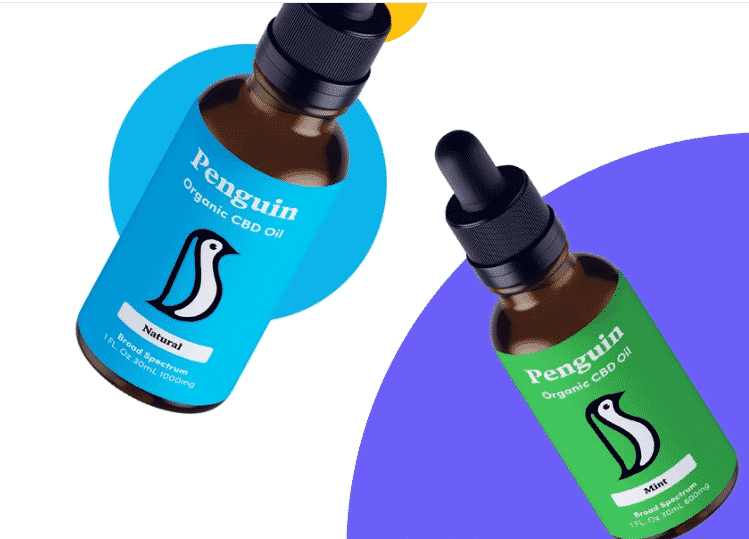The effects of CBD on today’s economy is shocking. It’s expected to be a $22 billion industry by the end of 2022, and the growth potential is hard to predict as laws that have prevented CBD’s sale and consumption in the past begin to crumble.
Today’s technology is helping to advance the CBD industry as well. Not only is it making CBD products more potent and effective for the user, but it’s also helping to deliver more affordable manufacturing for the average CBD company and pricing for consumers. Let’s look at some of the ways that tech is improving the CBD industry as we know it.
Water Soluble CBD
Currently, CBD is extracted from hemp using a CO2 extraction process that pulls the cannabidiol into a supercritical state. The best form of delivery for the CBD is in oil form because it keeps the enzymes and nutrients intact.
It’s incredibly difficult to get fully water-soluble CBD, but impressive strides are being made in this industry, which could revolutionize the CBD industry as we know it. It’s all part of a nano-encapsulation process that allows the CBD to be delivered in a water-based package rather than oil-based.
This could make it easier for CBD to go mainstream because it would allow you to infuse CBD in many products. Currently, chemists are working on ways to make water-soluble CBD with some success. It’s not as potent traditional CBD oil, but scientists are optimistic for the future of water-soluble CBD.
If water-soluble CBD becomes a reality, food and beverage companies may be more likely to pick it up. If it doesn’t alter the flavour and texture of the product, it’s easier to sell it as a health drink with an extra kick. Chemists are working hard to get the technology just right so that the unknown future in place could become a reality.
More Efficient Extraction Processing
One of the most expensive, time-consuming, and precisely difficult pieces of creating CBD is the CO2 extraction process. It requires high heat and rapid cooling for optimum delivery of the product using a rosin press. Chemists are using the most efficient extraction processing available, but it could always use improvement.
A company in Los Angeles is working on a patent-pending rosin press machine that they believe will quadruple the production of any other machine on the market. It applies about 1,900 pounds of pressure per square inch compared to the 1,000 pounds of pressure in a typical rosin press.
“Other companies focused on the electronic components and digital features controlling the heat temperatures; we directed our focus on innovating the size of the heat plates,” Spencer Sitnik, the creator of the Access Rosin Machin told Marijuana Business Magazine last year.
What does this mean for CBD as we know it? It means that CBD manufacturers will be able to pump out higher volumes of high-quality CBD and sell at bulk pricing. Because retailers are able to get more CBD in a batch, they can drop their prices for consumers. With the average cost of a bottle of high-quality CBD ranging anywhere from $50-$100, this will be a huge relief for consumers who use CBD regularly.
FinTech Possibilities
Those who want to start a the best CBD oil company often run into hang-ups when it comes to getting funding for their startups and growth. There are also challenges with payment processing systems that won’t work with CBD companies. Traditional financial organizations often see some risk in the CBD company given the shaky legislation surrounding it.
As a result, many financial technology companies are emerging to answer the needs of CBD companies. They’re providing platforms for companies to gain the proper funding to start and grow their CBD companies without worrying about risks that scare traditional lenders. There are also investment platforms where investors can meet with entrepreneurs to provide funding in exchange for a stake in the company.
New payment processors are also popping up to make it easy to make secure transactions both online and in person. Through these new possibilities, CBD companies don’t have to wonder if they’ll earn their next round of funding and be able to build profits to expand.
Efficient Ag Processing
One of the most impactful strains of technology is what’s happening in the hemp agricultural realm. We’re seeing technology being used to administer water, monitor weed levels, and prevent the use of herbicides that can ruin a hemp plant.
A great example is the Aqutonix by BLH Aqua Technology in South Korea. It’s a water-treatment machine that’s designed to use chemistry to break down water molecules so the hemp plants, which are very thirsty, can absorb them much better. Hemp growers can, therefore, use less water and get greater yields as a result.
Sensor technology and drones are also being used to keep an eye on water levels, toxins, weeds, and insect problems that could prevent efficient and safe hemp growing. The information collected by the sensors places in the fields is transmitted to a computer system, showing where the problem is. In some cases, a drone can then be employed to fix the problem, sprinkling more water in a certain area of the field or dropping a few drops of herbicide precisely on a weed population and missing the hemp entirely.
Technology in the CBD industry is nothing short of amazing, and this is just a small, segmented view of everything that’s potentially in store. Greater efficiency, better products, lower pricing, and happier consumers lie in weight for the new year and all it offers.
